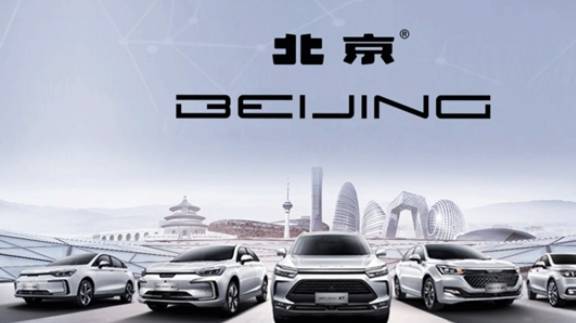Navigating the Post-JV Era: Beijing Automotive's Strategies
Beijing Automotive Industry Holding Co., Ltd., commonly referred to as Beijing Automotive, was founded on September 28, 2010. The company is an umbrella for a variety of automotive enterprises, including joint ventures such as Beijing Benz, Fujian Benz, Beijing Hyundai, and its own indigenous brand—BEIJING. Alongside vehicle manufacturing, the company has expanded into parts production and automotive finance, reflecting its comprehensive involvement in the automotive ecosystem.
In recent years, Beijing Automotive has faced significant challenges. Once thriving on the success of its joint ventures with global automotive giants, the company is now contending with the meteoric rise of Chinese independent automotive manufacturers, which have gradually diminished the market share and influence of foreign automotive alliances. As a result, the once-revered joint ventures are becoming less lucrative for Beijing Automotive. The validation of its traditional business model is now in question, prompting a critical reassessment and strategic shift.
Currently, the company faces three major challenges as it seeks to solidify its standing in the market: maintaining the competitive edge of Beijing Benz and Beijing Hyundai while nurturing its own electric brand—Mofang. The ability to navigate these complex dynamics will be pivotal for the future of Beijing Automotive.
Beijing Benz, often regarded as the flagship joint venture of Beijing Automotive, reached a peak in sales in 2020, but has since experienced a notable decline. Despite having launched its EQ electric vehicle brand in 2016, which made it one of the early adopters of new energy technology among joint ventures, the transition has not yielded the desired results. The strategy of transitioning from internal combustion engines to electric vehicles has faced hurdles, suggesting that simply adopting a new powertrain without a holistic adaptation in design and marketing may not suffice.
Advertisement
During this transitional phase, several models were released, including the EQB, EQC, EQE, and EQA, yet their collective market performance fell short of expectations. The cumulative sales for these electric vehicles were disappointing, with figures indicating they only sold a few thousand units each in 2022. A desperate move towards reducing prices for some EQ models in November 2022 did not improve sales, leaving the brand in a precarious position.
The troubles for Beijing Benz were compounded by product issues, which have often drawn public scrutiny. For instance, the EQC had to contend with a significant recall after it was revealed that a substantial number of units faced motor failures. Such incidents not only affected consumer trust but also highlighted the underlying issues in quality control—a critical component for any automotive manufacturer aiming for longevity and brand loyalty.
On the other side of the coin, Beijing Hyundai is grappling with similar challenges. Established in October 2002, Beijing Hyundai initially thrived and peaked around 2013 when it surpassed the one million sales mark. However, in the period following 2016, the company has witnessed a consistent decline in sales, eroding its market position as independent brands gather momentum.
Beijing Hyundai's efforts to pivot include a strategic partnership formed in March 2022, where a significant investment was injected for a complete management overhaul. The shift towards electrification includes ambitious plans for hybrid and electric vehicles, which mirror the market's evolving preferences for greener alternatives. The road ahead involves introducing new electric models in conjunction with mixed-fuel technologies, aiming to align closer with changing consumer dynamics.
Among its independent brands, Beijing Automotive has made slow strides as well. Although efforts are underway to develop competitive products, the results have yet to resonate in the market. The EU and X series face lackluster sales, unable to capture significant consumer interest when juxtaposed against more established competitors in both traditional and electric segments.
The launch of the Mofang, a compact SUV present in the market since mid-2022, highlighted the company's strategy to integrate advanced technology, including collaborations with tech powerhouse Huawei. Featuring the HarmonyOS for its smart cockpit and 5G capabilities, Mofang strives to tap into the rising demand for connectivity and tech integration in cars. Nevertheless, consumer reception has been modest, reflecting the broader struggle within the autonomous segment of the Beijing Automotive brand lineup.
As Beijing Automotive maneuvers through this complex and competitive landscape, its quest for revitalization will require focused innovation and a deeper understanding of market dynamics. The company's strategic direction will need to pivot towards sustainable practices while maintaining product reliability and performance. Considering the substantial investments and partnerships being formed, the foresight to adapt and evolve in this rapidly changing environment will determine its success or failure.

In addition to its domestic strategy, the company is eyeing potential overseas markets to bolster growth amid challenging local sales. A recent deal with Jordan’s Mallouk Group exemplifies this direction, marking an intent to expand its footprint beyond China. With evolving consumer preferences and an emphasis on innovation, will Beijing Automotive regain its position as a key player in a post-foreign brand era? Time will tell.
Leave a comment